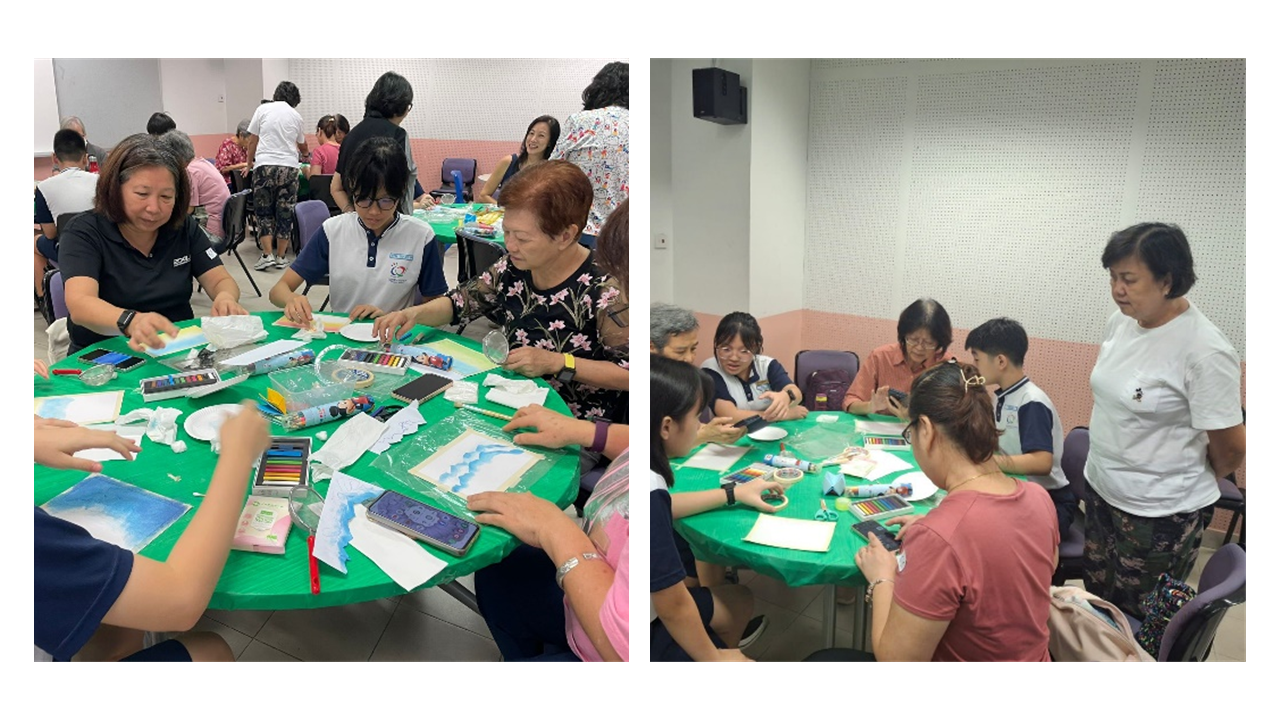Values in Action (VIA)
5516 Daily Classroom Cleaning
Queenstown Primary School nurtures values through daily actions. Our 5516 programme encourages students to take ownership of their learning environment through:
-
5 minutes of cleaning
-
5 times a week
-
16 hours annually
Students clean their classrooms and personal areas daily, developing discipline, responsibility, and care for their 'second home'.
Clean Classroom Campaign
Environment Ambassadors lead their peers in daily cleaning routines, fostering leadership and collective responsibility. Classes demonstrating exceptional commitment receive certificates recognising their dedication.
Cultivating Values
Through 5516, students learn to show gratitude to school cleaners, take pride in their environment, and develop ownership and community spirit. This daily practice reinforces responsibility, resilience, integrity, and care—creating a conducive learning atmosphere while instilling core values in every student.
Primary 1: K2 Befriender Programme
The K2 Befriender Programme pairs Primary 1 students with K2 children from partner preschools through letter exchanges integrated into English lessons. Primary 1 students develop as mentors, preparing to welcome their buddies during a half-day school visit where K2 students experience primary school life and attend lessons together.
Programme Benefits:
-
Leadership Development: Primary 1 students nurture leadership qualities as caring mentors
-
Literacy Enhancement: Letter exchanges enhance writing and communication skills through English curriculum integration
-
School Transition Support: K2 students gain familiarity with primary school environment and routines
Both groups reflect on their experiences, reinforcing valuable lessons learned. Through this programme, Primary 1 students demonstrate care and gratitude towards their junior buddies, embodying the school's values in a meaningful way.
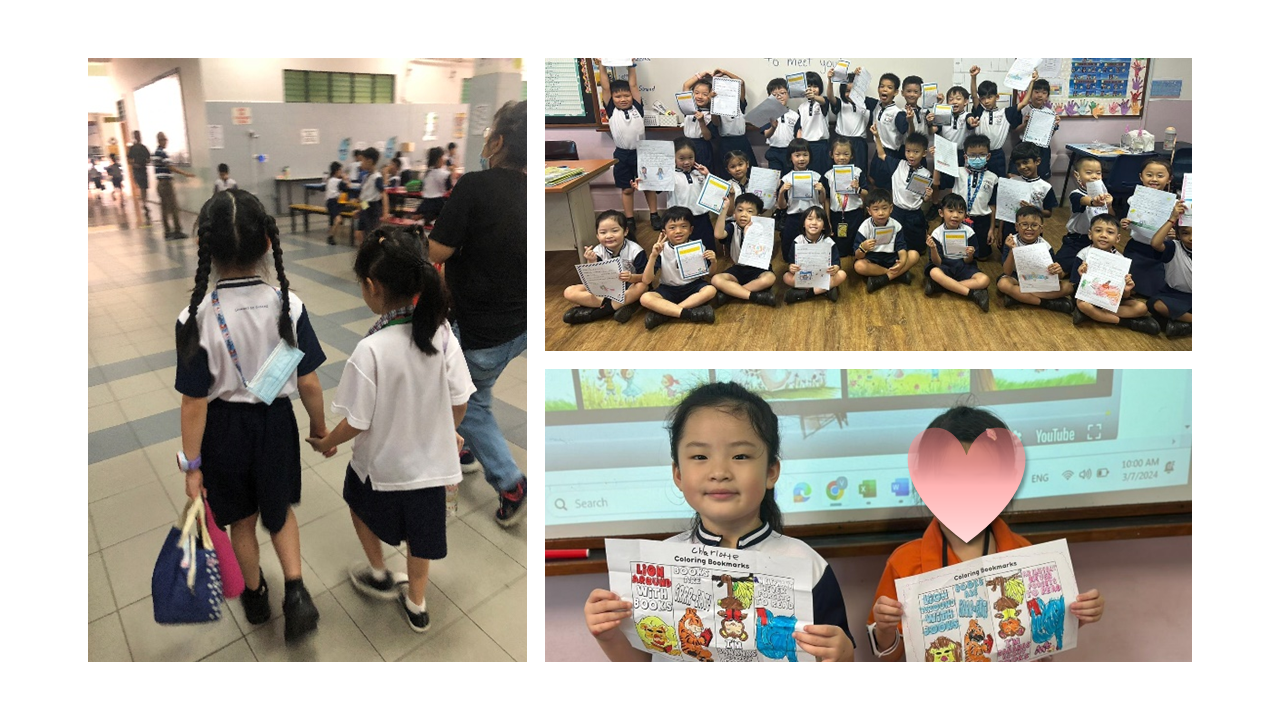
Primary 2: Clean it Right!
The "Clean it Right!" programme develops Primary 2 students' responsibility towards the school environment and appreciation for cleaning staff through engaging activities.
Programme Components:
Understanding Our Cleaners' Challenges
Students participate in classroom activities and a conversation session
with school cleaners, learning about their daily routines and challenges.
This interaction fosters appreciation for maintaining the learning environment
and encourages students to contribute to school cleanliness as a gesture
of gratitude.
Creative Reflection - Jingle Composition
Students compose meaningful jingles that serve as daily reminders about
the importance of the 5516 cleaning routine, reinforcing the school's commitment
to cleanliness.
Hands-On Application
The programme culminates with students cleaning designated school areas,
allowing them to contribute directly and understand the impact of their
actions.
Through "Clean it Right!", Primary 2 students develop empathy, gratitude, and community spirit while learning about responsibility and environmental stewardship.
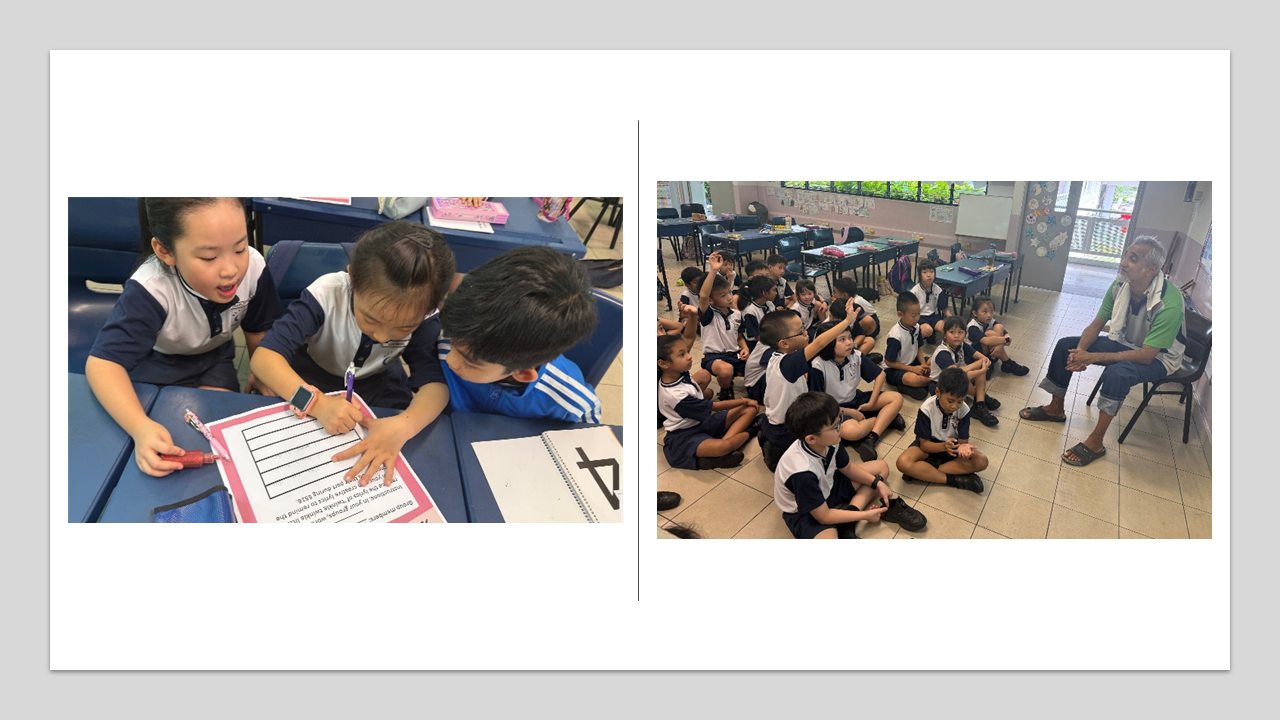
Primary 3: Gracious Commuting
This collaborative VIA programme with SMRT develops Primary 3 students' consideration and care in public transportation through three key components:
SMRT Assembly Talk
SMRT staff share insights about station staff roles, daily challenges,
and the importance of public consideration. Students learn about awareness
initiatives like the 'May I Have a Seat' lanyard, encouraging them to offer
seats to those in greater need.
Classroom Activities
Students engage in small group discussions on graciousness in public transport,
reflecting on how they can demonstrate consideration. They create handmade
bookmarks containing messages of gracious commuting.
Community Outreach
Students visit nearby MRT stations to distribute their handmade bookmarks
to commuters, actively spreading awareness of considerate behaviour in
public transportation.
Through this programme, Primary 3 students cultivate empathy, social responsibility, and civic-mindedness, becoming thoughtful users of public transport and considerate members of society.
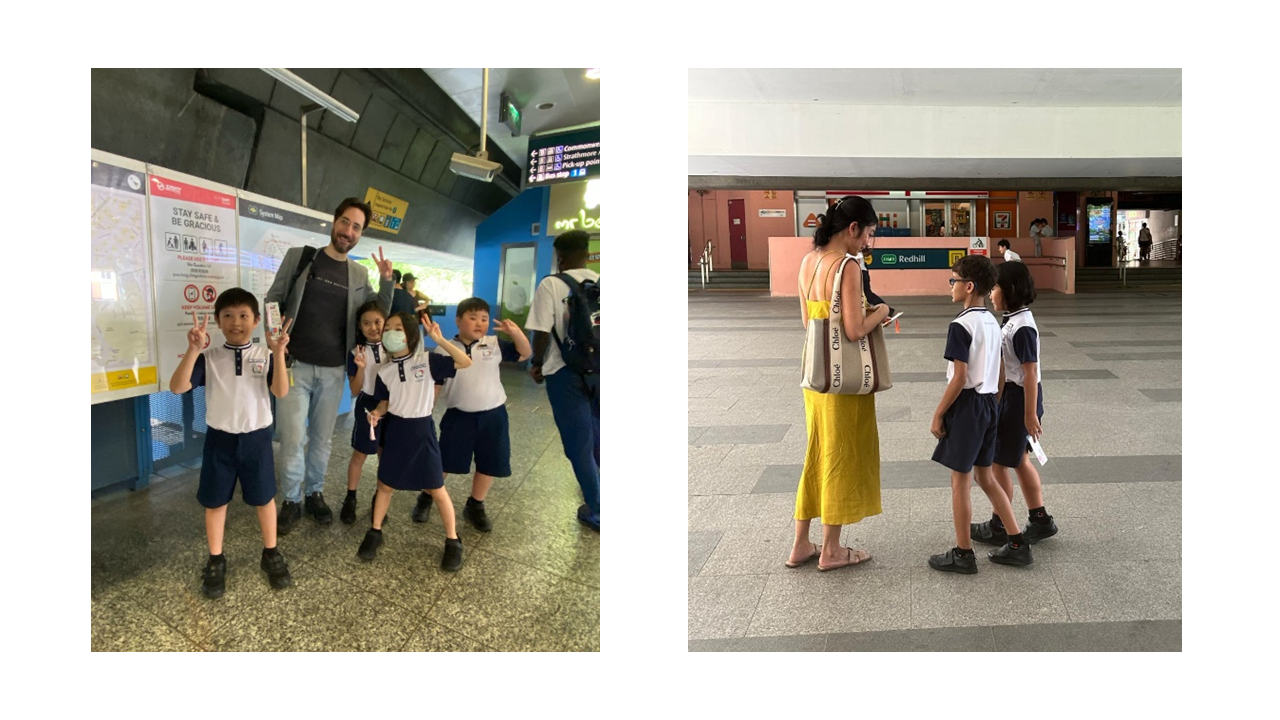
Primary 4: Adopt A Park
The Adopt-a-Park programme aligns with Singapore's Green Plan, fostering Primary 4 students' responsibility towards shared spaces and the natural environment through three components:
City in Nature Talk National Environment Agency (NEA) staff educate students about Singapore's Green Plan, native biodiversity, and the importance of community and companion animals in our ecosystem, establishing understanding of environmental initiatives and parks' role in urban landscapes.
Classroom Activities Students engage in discussions and interactive exercises about being considerate users of shared spaces like parks. Activities help students appreciate greenery and animals while reflecting on their role in maintaining and respecting public green areas.
Hands-on Environmental Stewardship Students participate in a park clean-up activity near school, putting learning into action while observing and appreciating nature in their school environment.
Through Adopt-a-Park, Primary 4 students develop environmental awareness, responsibility for public spaces, and appreciation for local flora and fauna. This programme nurtures environmentally conscious citizens who understand the importance of green spaces and actively contribute to their preservation.
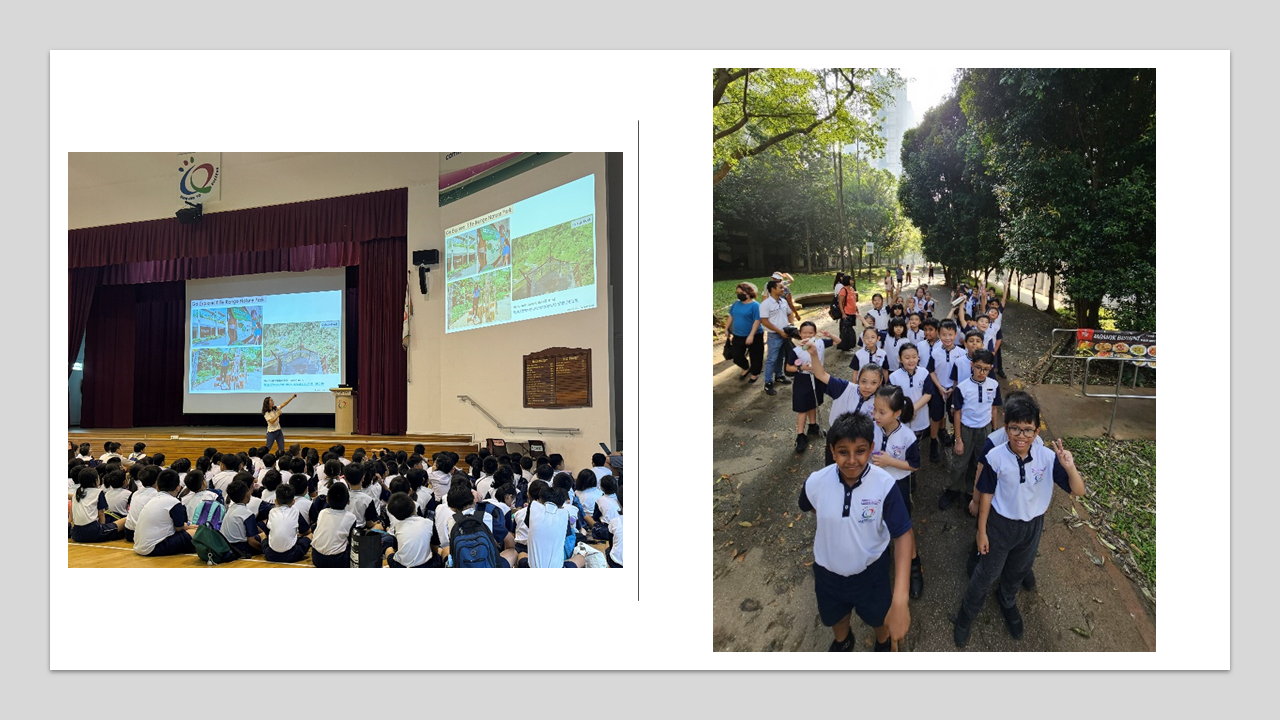
Primary 5: We Are All Special!
This collaborative programme with Dialogue in the Dark from Ngee Ann Polytechnic fosters Primary 5 students' empathy and understanding towards the visually impaired community through four components:
Interactive Dialogue Session
Visually impaired facilitators engage students in meaningful conversations,
sharing their experiences and perspectives. This session provides valuable
insights into daily lives of people with visual impairments, cultivating
empathy and understanding.
Recess-in-the-Dark Experience
Students enjoy their recess food while blindfolded, experiencing challenges
faced in everyday situations. This immersive activity deepens appreciation
and fosters empathy and awareness.
Classroom Activities and Reflection
Students consolidate their learning through classroom activities and craft
heartfelt thank-you letters to facilitators, expressing gratitude and sharing
their insights.
Peer Education Initiative
Students plan and prepare interactive booths to share their learning with
lower primary juniors, reinforcing understanding while becoming advocates
for inclusivity and empathy within the school community.
Through "We Are All Special!", Primary 5 students develop deeper empathy, understanding, and advocacy skills for creating an inclusive community.
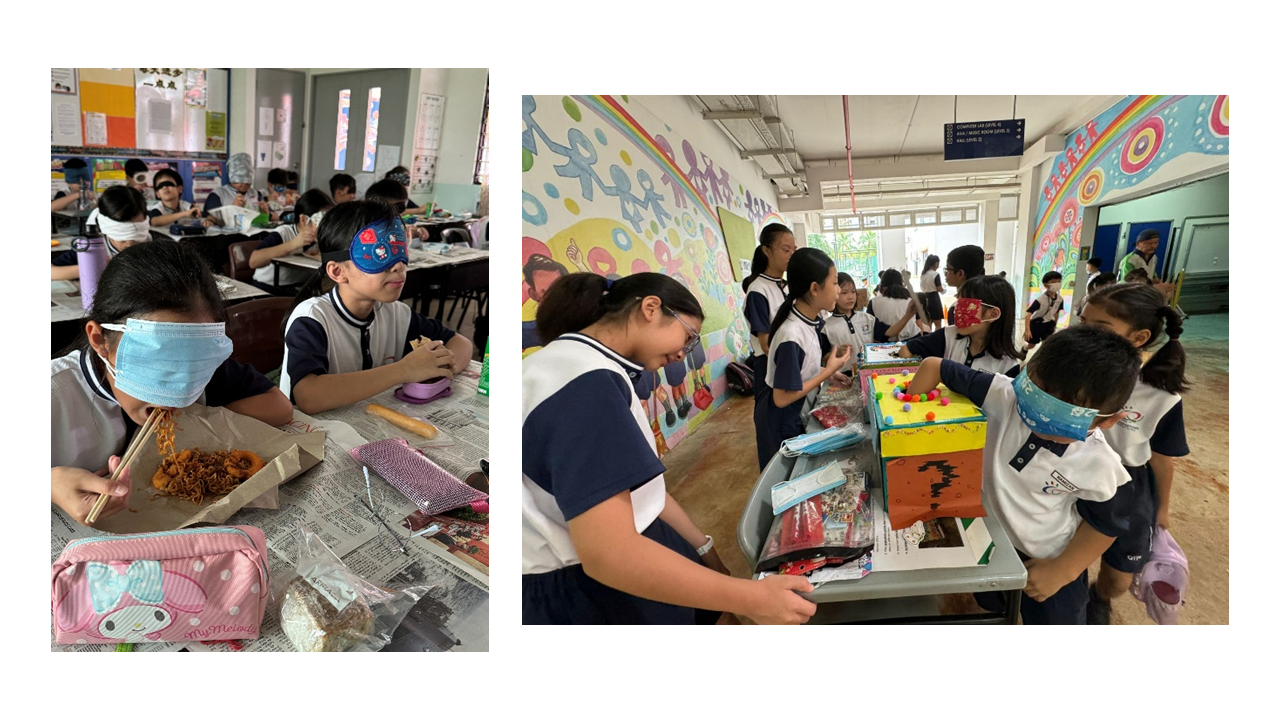
Primary 6: Care for Older Adults
The programme develops Primary 6 students' empathy and understanding of the ageing process while promoting meaningful intergenerational connections through three key components:
Dialogue with Time Exhibition
Students visit the interactive "Dialogue with Time" exhibition at the
Science Centre to experience and understand the ageing process firsthand.
This immersive experience helps students develop empathy and reconsider
their perceptions of ageing, fostering a deeper appreciation for older
adults.
Classroom Reflection and Discussion
Following the exhibition, students engage in class discussions and personal
reflections, processing their experiences and consolidating their learning
about ageing and the challenges faced by older adults.
Community Partnership with Day Care Centres
Each Primary 6 class partners with local day care centres to plan and
conduct interactive sessions with seniors. Students research seniors' needs
and interests, designing activities that cater to their preferences. Through
these visits, students interact with seniors and learn from their rich
life experiences, promoting valuable intergenerational learning.
Through "Care for Older Adults", Primary 6 students develop empathy, respect, and gratitude while learning to appreciate the wisdom and contributions of older adults in their community.
